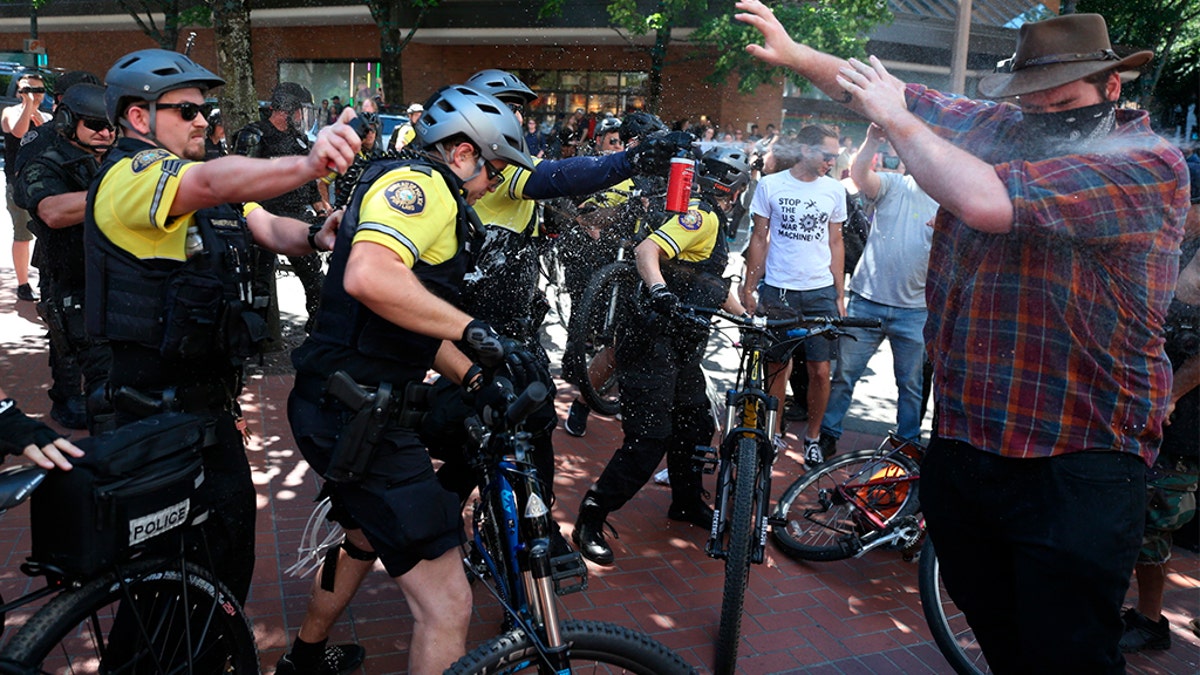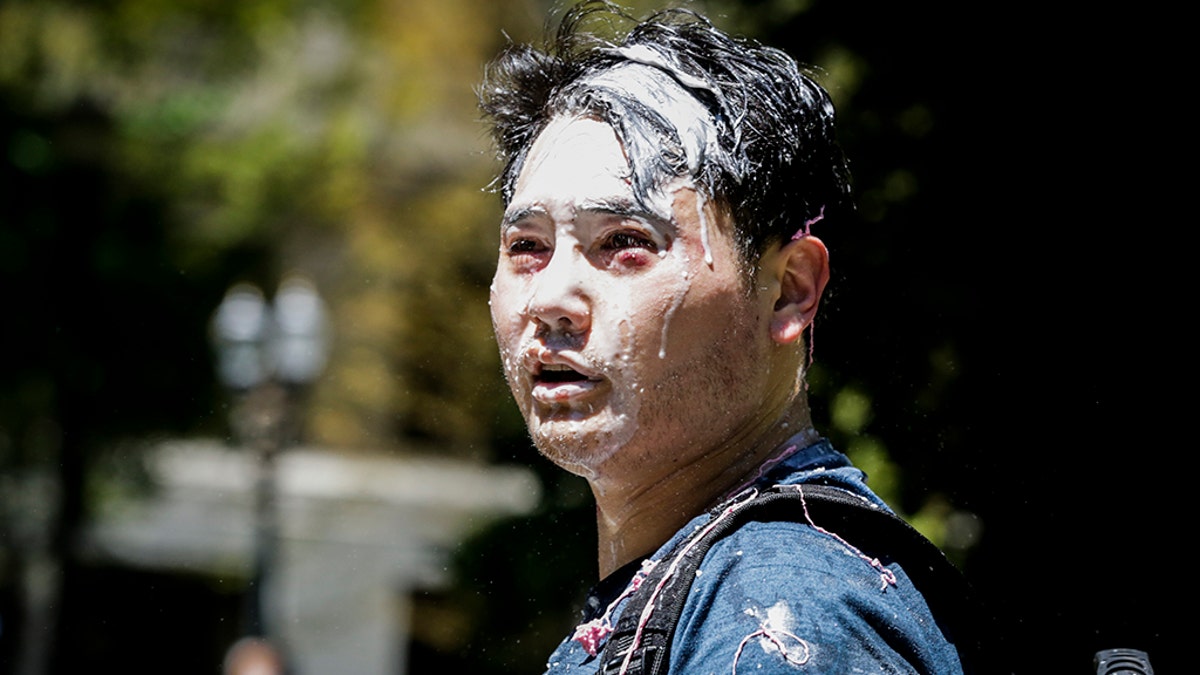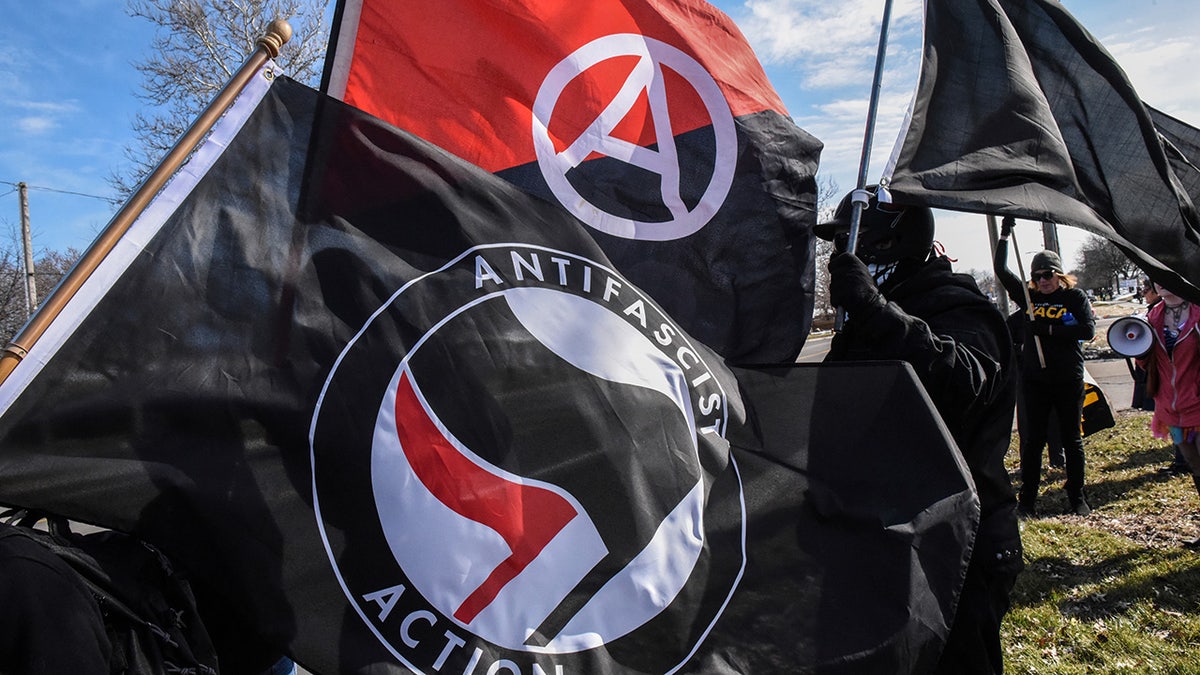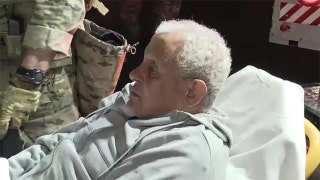As skirmishes erupted in pockets across the country Wednesday – over the election and racial equality – groups mobilized in online chats under different banners to plan post-election activism.
A U.S. military intelligence veteran has connected with the First Amendment Praetorian (1AP), a crowdfunded, volunteer force of military, law enforcement and intel agency professionals offering free security services to small religious and nonprofit gatherings.
But infiltrating the extreme left-wing elements, often referred to as "Antifa," has been his life's work since the outfit's reemergence in politics in 2017.
"It is not just an idea. It is more than an idea," the former intel professional, referred to as GN for security purposes, told Fox News. "There is a wide collective of groups coordinating. You don't just randomly show up – with hundreds chanting the same slogans across multiple parts of the country at the same time."
TRUMP CAMPAIGN TO ANNOUNCE NEVADA LAWSUIT ALLEGING NONRESIDENTS VOTED THERE
Short for "anti-fascist," the group has come under intense scrutiny by the White House and Justice Department as an acute security threat, with President Trump earlier this year threatening to officially designate the outfit a "terrorist organization."
However, critics of the administration's focus on Antifa – including Democratic presidential nominee Joe Biden – insist that the peril posed is centered in ideology rather than a physical collective and that its presence has been dramatically overplayed.

After a confrontation between authorities and protesters, police use pepper spray as multiple groups, including Rose City Antifa, the Proud Boys and others protest in downtown Portland, Ore., on June 29, 2019. (Dave Killen/The Oregonian via AP)
According to GN and others who have long "infiltrated" different facets of the online coordination, there is a firm reliance on encrypted apps, initially WhatsApp, but in recent months more secure platforms have been utilized, including Telegram and Signal, as well as Zoom and Skype for broader and less covert discussions.
Robert Lewis, a 1AP founder and former Green Beret, told Fox News that in recent times "video game messaging" was used. Users signed up and chatted through various online gaming platforms, making their groups and channels much more challenging to track down.
The dark web also is used, but while some observers say riot planners perceive it as "safe," others lament the ineffectiveness of VPNs.
Within the chat groups, GN explained, are "sub chat groups." Broader national-level discussions are broken down into regions, cities and even localized within cities. Members are said to vary fairly widely – professors, doctors, lawyers, along with a number of former and active military and law enforcement.
"That has been one of the parts I have found most alarming," he noted. "They use this expertise for further knowledge as to where authorities will be or what their plans are, and for tactical knowledge."

Andy Ngo, a Portland-based journalist, is covered in unknown substance after unidentified Rose City Antifa members attacked him on June 29, 2019, in Portland, Ore. Several groups from the left and right clashed after competing demonstrations at Pioneer Square, Chapman Square and Waterfront Park spilled into the streets. According to police, medics treated eight people and three people were arrested during the demonstrations. (Moriah Ratner/Getty Images)
However, there are some boundaries – including minimum age.
"Minors are usually kicked out if their age becomes known," GN said. "Or they are encouraged to go and join an age-appropriate activist forum."
NORTH CAROLINA COUNTY WARNS ILLEGAL ROBOCALLS ARE SPREADING ELECTION DAY MISINFORMATION
But reaching the point of infiltration involves a somewhat "prehistoric" vetting process, the intel gatherers surmised.
"There are larger groups, upwards of 200, which are pretty easy for most people to join. They are more informational, but generally don't put out flyers about events and protest meet-ups publicly until the last minute," GN continued. "But getting into the smaller sub-groups, which are always fully encrypted chats, requires more work. Those running those groups want several others to vouch for you, and they also want to see what other related groups you have been let into."
Nonetheless, the "paranoia level" is said to remain high.
"Members are very aware that they are being monitored," GN continued. "But accusing someone of being a snitch is also a huge deal. People are warned that it is often the undercover informants that are the ones accusing others of being informants to cover themselves, so that is strongly discouraged unless someone has very clear evidence of it being the case."
And within the groups, there are instructions tailored to each demonstration event – how to dress, how to handle the media, how to handle being arrested – with "communications" experts sending on-the-ground information to those following along in chats during real-time events.
There are supposedly others who take charge of coordinating bail, heralding food and catering, and issuing numbers if someone needs assistance if apprehended.
"The messaging is constant, all day and night. Some just midsized groups. I might not check for 40 minutes, and there will be 150 new messages," GN noted. "There are a fair amount of maps disseminated too – outlined with red zones, where to avoid if heavy police presence, as well as updates and monitoring of any pro-Trump events or rallies."
People monitoring the various encrypted chats and channels underscored a strange quietness in the days surrounding Tuesday's much-anticipated election.
But in the weeks leading up to Tuesday, there was a renewed focus on individual phone security. They were advised to use PIN codes rather than biometrics so authorities could not compel them to unlock devices with a simple swipe of a finger.
Discussions surrounding other techniques also grew – such as the use of military backpacks that interlock so demonstrators can "group up" and thwart arrests.
"But overall, things did quiet down. Election Day was pretty dry, almost like a rest period," GN conjectured, pointing out that there was some chatter about swarming polling stations but none of that panned out.
Lewis also highlighted that there are many different ideologies within the chats and factions, but that they have certain "solidarity days" in which they agree to put their differences aside for a "greater good."
Despite anxiety leading up to Tuesday's hotly contested election between Biden and Trump – which saw businesses across the country board up windows and major cities bolster law enforcement -- as of Thursday there were a handful of protests, blocked traffic and arrests in several cities.
"We did notice that there was some slowing down, that people were being encouraged to 'take a break' this week if they needed too," Lewis concurred.

Ten anti-fascist protesters were arrested at a neo-Nazi rally in Georgia after some refused to remove the masks they were wearing at the demonstration. (Reuters)
Yet some still warn the worst is yet to come.
"In layman's terms, they don't want anyone in the White House. The vast majority of those in the streets don't have political leanings. They want neither party governing," GN asserted.
And according to Tony Schiena, chairman of MOSIAC security firm, the eruption of future violence hinges on the yet-to-be-determined election result.
"Any plans for unrest, demonstrations or targeting by far left or right will happen after election results are delivered. If Biden wins, I think targeting will be more strategic and focused by the militaristic far right," he surmised. "If Trump wins, I think the left will demonstrate in most of the cities of America, almost immediately. Antifa may have started as ideological, but it's now absolutely an organized group."
CLICK HERE TO GET THE FOX NEWS APP
However, watchful eyes contend that – as far as the left-leaning Antifa is concerned – the outcome isn't of particular importance.
"They are anarchists, and they hate Joe Biden just as much as they hate Donald Trump," Lewis added. "The idea is to make the U.S. seem ungovernable under the current structure. It is about bringing down the system."











































